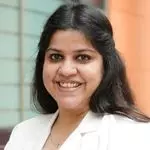- Home
- Medical news & Guidelines
- Anesthesiology
- Cardiology and CTVS
- Critical Care
- Dentistry
- Dermatology
- Diabetes and Endocrinology
- ENT
- Gastroenterology
- Medicine
- Nephrology
- Neurology
- Obstretics-Gynaecology
- Oncology
- Ophthalmology
- Orthopaedics
- Pediatrics-Neonatology
- Psychiatry
- Pulmonology
- Radiology
- Surgery
- Urology
- Laboratory Medicine
- Diet
- Nursing
- Paramedical
- Physiotherapy
- Health news
- Fact Check
- Bone Health Fact Check
- Brain Health Fact Check
- Cancer Related Fact Check
- Child Care Fact Check
- Dental and oral health fact check
- Diabetes and metabolic health fact check
- Diet and Nutrition Fact Check
- Eye and ENT Care Fact Check
- Fitness fact check
- Gut health fact check
- Heart health fact check
- Kidney health fact check
- Medical education fact check
- Men's health fact check
- Respiratory fact check
- Skin and hair care fact check
- Vaccine and Immunization fact check
- Women's health fact check
- AYUSH
- State News
- Andaman and Nicobar Islands
- Andhra Pradesh
- Arunachal Pradesh
- Assam
- Bihar
- Chandigarh
- Chattisgarh
- Dadra and Nagar Haveli
- Daman and Diu
- Delhi
- Goa
- Gujarat
- Haryana
- Himachal Pradesh
- Jammu & Kashmir
- Jharkhand
- Karnataka
- Kerala
- Ladakh
- Lakshadweep
- Madhya Pradesh
- Maharashtra
- Manipur
- Meghalaya
- Mizoram
- Nagaland
- Odisha
- Puducherry
- Punjab
- Rajasthan
- Sikkim
- Tamil Nadu
- Telangana
- Tripura
- Uttar Pradesh
- Uttrakhand
- West Bengal
- Medical Education
- Industry
Rare Disease Show Episode 20: Understanding Pearson Syndrome with Dr Swati Bhayana - Video
|
Overview
Medical Dialogues presents a rare disease series, delving into the realm of uncommon medical conditions. Rare diseases are medical conditions that affect only a small percentage of the population. Throughout this series, we'll discuss these rare diseases in various episodes, with medical experts providing clear explanations and insights.
Rare Disease Show Episode 20-- In today's show we will cover Pearson Syndrome.
Pearson syndrome is a rare and severe mitochondrial disorder primarily affecting infants and young children, caused by deletions or mutations in mitochondrial DNA (mtDNA).
It is characterized by bone marrow dysfunction, leading to anemia and pancytopenia, and pancreatic insufficiency, which causes malabsorption and failure to thrive. The condition often involves multiple organs, including the liver, kidneys, and nervous system, with symptoms such as growth retardation, neurological delays, and metabolic imbalances.
Diagnosis relies on clinical features and genetic testing to identify mtDNA abnormalities. While there is no cure, supportive treatments like blood transfusions, enzyme replacement, and nutritional support aim to manage symptoms and improve quality of life.
The prognosis is generally poor, with many affected infants succumbing to complications early, though some may develop other mitochondrial disorders later in life.
In this episode, Dr Swati Bhayana, Associate Consultant - Paediatric Hematology Oncology and BMT Unit, Fortis Memorial Research Institute, Gurugram shares her insights by addressing questions asked by the Medical Dialogues team-
1. How is Pearson Syndrome differentiated from other mitochondrial disorders or hematologic conditions? Why is this a rare disease?
2. Can Pearson Syndrome be diagnosed at birth, or does it typically become apparent later in infancy or early childhood?
3. Are there any early warning signs, also what are the most common symptoms that one should watch for in infants or young children?
4. What specific tests or diagnostic criteria are used to diagnose Pearson Syndrome?
5. Are there any significant differences in how Pearson Syndrome manifests in boys versus girls?
6. What are the main hematologic manifestations (e.g., cytopenias, anemia) seen in Pearson Syndrome?
7. How does Pearson Syndrome affect other organ systems, such as the heart, pancreas, or liver?
8. What are the current treatment options for Pearson Syndrome?
9. Is bone marrow transplantation a viable option for children with Pearson Syndrome who have severe cytopenias?
10. What are the potential complications or secondary conditions that can arise in children with Pearson Syndrome as they age?
11. What is the genetic inheritance pattern of Pearson Syndrome, and what are the chances of recurrence in future pregnancies?
12. Are there any lifestyle or dietary recommendations that could improve the quality of life for a child with Pearson Syndrome?
13. Are there any promising treatments on the horizon for this condition?
Speakers
Dr. Nandita Mohan is a practicing pediatric dentist with more than 5 years of clinical work experience. Along with this, she is equally interested in keeping herself up to date about the latest developments in the field of medicine and dentistry which is the driving force for her to be in association with Medical Dialogues. She also has her name attached with many publications; both national and international. She has pursued her BDS from Rajiv Gandhi University of Health Sciences, Bangalore and later went to enter her dream specialty (MDS) in the Department of Pedodontics and Preventive Dentistry from Pt. B.D. Sharma University of Health Sciences. Through all the years of experience, her core interest in learning something new has never stopped. She can be contacted at editorial@medicaldialogues.in. Contact no. 011-43720751
Dr Swati Bhayana (MBBS, MD (Paediatrics), FNB (Paediatric Haematology Oncology)) is the Associate Consultant - Paediatric Haematology Oncology and BMT Unit, Fortis Memorial Research Institute, Gurugram. She specialises in all Benign Haematology Cases, Haemophilia, ITP, Platelet defects, all Paediatric Cancers, Leukaemia, Lymphomas, Brain Tumours, Immunodeficiency, etc. Her special interest lies in Leukaemia and Neuro-Oncology. She completed her MBBS from Maulana Azad Medical College (MAMC) and her MD in Pediatrics from UCMS. She pursued further specialization with an FNB in Pediatric Hematology-Oncology and BMT from Sir Ganga Ram Hospital. Dr. Bhayana has an impressive academic portfolio, with 25 publications and chapters to her credit. She is an active member of prominent medical organizations, including the Indian Academy of Pediatrics (IAP PHO), the Indian Society of Neuro-oncology (ISNO), the Indian Society of Pediatric and Medical Oncology (ISMPO), and ISBMT.




